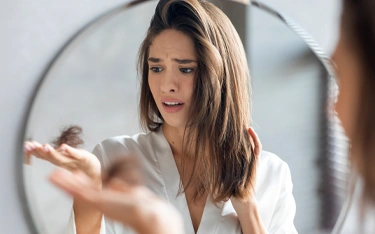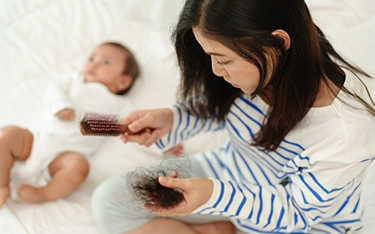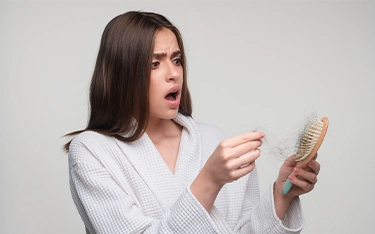FAQs
Dr Batra’s® offers personalised female hair loss treatment combining homeopathy and advanced aesthetic solutions. These help in promoting hair regrowth for women. These treatments target the root causes of hair loss and support healthier, thicker hair.
Homeopathic treatments at Dr Batra’s® aid are designed to target the underlying causes of female hair loss and stimulate hair regrowth naturally, without side effects. These personalised treatments work holistically to support long-term hair health
Yes, making lifestyle changes such as managing stress, balanced diet and using proper hair care routines can strongly contribute to hair regrowth for women. Stress management and proper nutrition play a key role in female hair loss treatment.
Stress can trigger hair loss in women, including conditions like Telogen Effluvium. Relaxation techniques and meditation can aid in reducing stress. This is crucial for female hair loss treatment and supporting hair regrowth for women.
Yes, natural remedies such as essential oils, aloe vera and scalp massages can support scalp health and enhance hair regrowth for women. When combined with Dr Batra’s® personalised female hair loss treatment, these remedies can promote better hair growth and overall scalp wellness.
Scalp treatments and massages can improve circulation and encourage hair regrowth for women. Essential oils such as rosemary and pumpkin seed oils support the natural healing process of the scalp. This promotes better hair growth.






